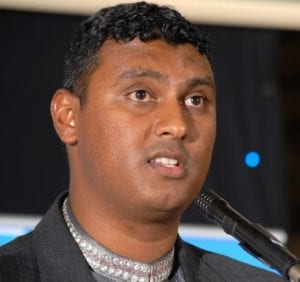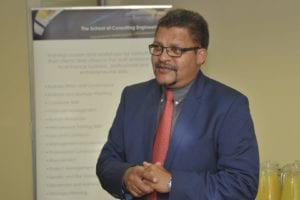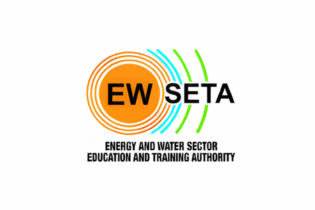 Fourteen Voluntary Associations (VAs) are taking legal action against the Department of Public Works (DPW) and the Engineering Council of South Africa (ECSA), alleging that the appointment of the new ECSA council is unlawful.
Fourteen Voluntary Associations (VAs) are taking legal action against the Department of Public Works (DPW) and the Engineering Council of South Africa (ECSA), alleging that the appointment of the new ECSA council is unlawful.
Quality engineering
ECSA acts as the enforcing body for quality of engineering infrastructure services, as it registers engineering practitioners and regulates their practice. It also accredits education and training programmes in various fields of engineering – ensuring high standards and global recognition. “By undermining the quality of oversight of engineering practitioners in South Africa, the entire pipeline of engineering infrastructure services, manufacturing and production will be at risk,” says SAICE CEO Manglin Pillay. “This could potentially result in the health and safety of the public being placed in jeopardy.” According to Consulting Engineers South Africa (CESA), the allegations of compromised good governance, the lack of consultation with affected industries, and the questionable integrity of the appointments under the guise of transformation will erode their profession and impact on industry both locally and internationally. “Our citizens deserve to experience less flooding, and fewer bridge or roof collapses, not more,” said CESA CEO Chris Campbell. CESA has over 500 member companies, employing more than 20 000 people countrywide.Peer review system under threat
South African consultants work extensively globally and specifically in neighbouring states. International accreditation through the Sydney, Dublin and Washington Accords, is dependent on a substantial peer review system for professional registration with ECSA. According to the VAs, the new council would allegedly replace this system with another system which would dissolve the extensive peer review system and consequently compromise the recognition of professionally registered engineering practitioners internationally – as it is a prerequisite for being a signatory to these accords. Government-supported efforts to export professional services would thus also be jeopardised. Industry players who have joined the court action say that the lack of integrity in the new ECSA council appointment process has opened the door for individuals who are unknown to the industry, and who now have undue influence over the profession.Senior industry professionals caution that ECSA is at risk of diluting the peer review mechanism as part of the registration process, as peer review is a prerequisite for South Africa retaining its recognition by the International Engineering Alliance. A particular concern in this regard is the new council’s aim to disband many of ECSA’s registration-related committees, which many fear will undermine quality assurance and rigour in the professional registration process.
Efforts to resolve the matter
According to a release by SAICE, efforts by SAICE and other associations in the engineering fraternity to resolve the issue by negotiation have come to nought. The matter was reportedly taken up with both the ECSA president and CEO, as well as the director general of the DPW. The request for a special council meeting, however, was overruled by the ECSA president. SAICE reports that when the group’s letter to the Minister of Public Works – requesting his intervention – went unanswered, they were obliged to take the legal route.VAs alleged marginalisation
It is also alleged that ECSA is marginalising the learned societies representing South African engineering professionals. According to professionally registered engineer and consultant Seetella Makhetha, the new council “is being misled into marginalising the voluntary associations, who play an integral role in the professional registration process and the various committee functions at ECSA.” Makhetha, who is also a volunteer to ECSA, said the manner of the new council’s appointment had jeopardised the synergy between the learned societies and ECSA, which is vital for the nation’s delivery of safe engineering services. “With the work being managed and controlled predominantly by the ECSA administration,” he said, “the professionals and learned societies – many of which have been around for over a century and are the centre of learned activity – are being relegated and disregarded.” Concerns are also being expressed about the possible impact on international accreditation of South African tertiary qualifications, according to some Deans of Engineering around the country. “If we lose our international accreditation, this will mean that South Africans may not in future be allowed to study postgraduate programmes internationally, or even practise engineering internationally,” said a leading professor and Dean who wished to remain anonymous. “We are also worried about our own university’s good standing in relation to engineering programmes.” The following VA’s will take part in the legal action:- Aeronautical Society of South Africa (AESSA)
- Concrete Society of Southern Africa (CSSA)
- Institution of Certificated Mechanical and Electrical Engineers of South Africa (ICMEESA)
- Institute of Municipal Engineering of Southern Africa (IMESA)
- SAICE Professional Development & Projects (SAICE-PDP)
- South African Institution of Chemical Engineers (SAIChE)
- Southern African Institute of Mining and Metallurgy (SAIMM)
- Consulting Engineers South Africa (CESA)
- Chamber of Engineering Technology (COET)
- Institute of Professional Engineering Technologists (IPET)
- Southern African Society for Trenchless Technology (SASTT)
- South African Asset Management Association (SAAMA)
- South African Institute of Agricultural Engineers (SAIAE)
- South African Institution of Civil Engineering (SAICE)









